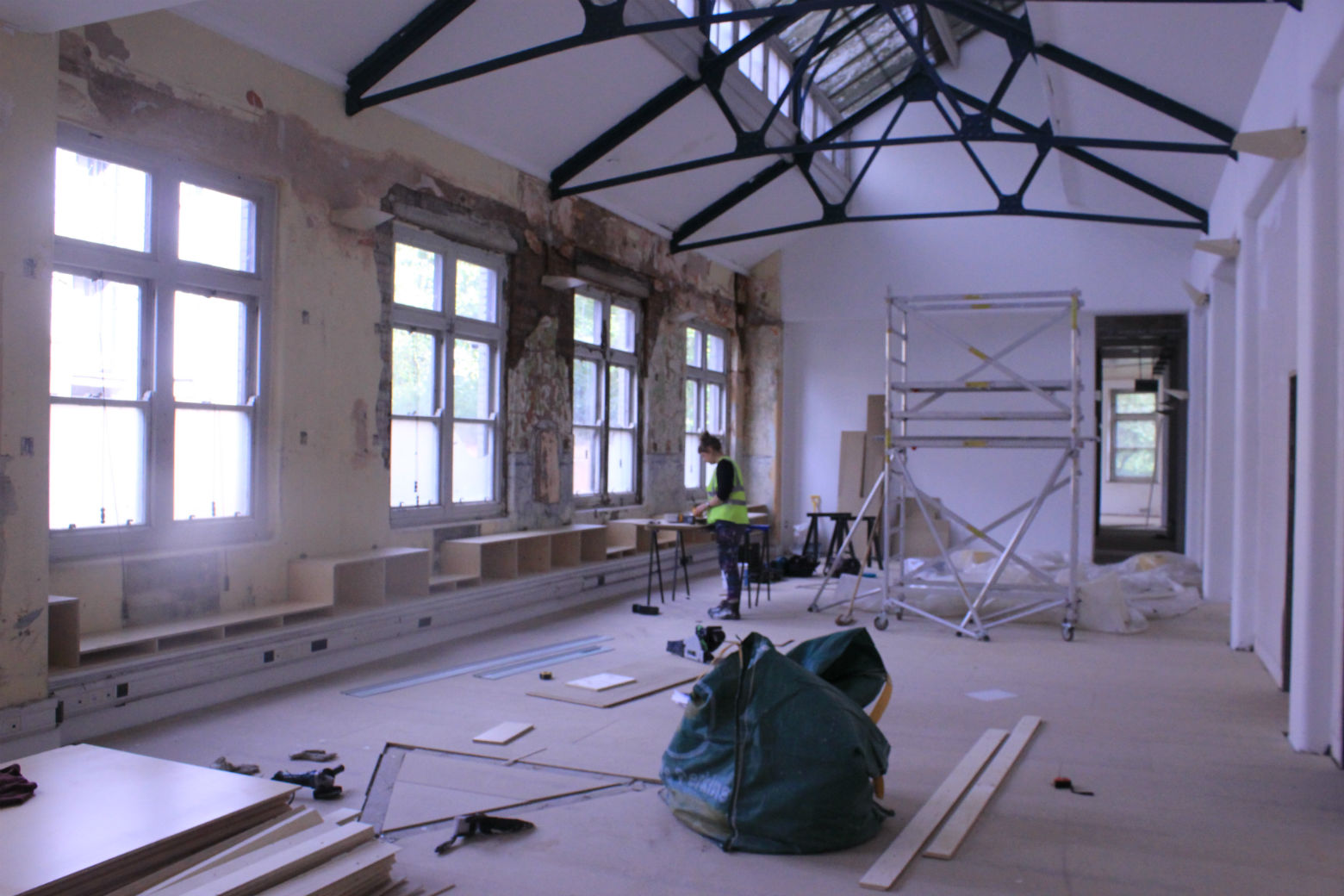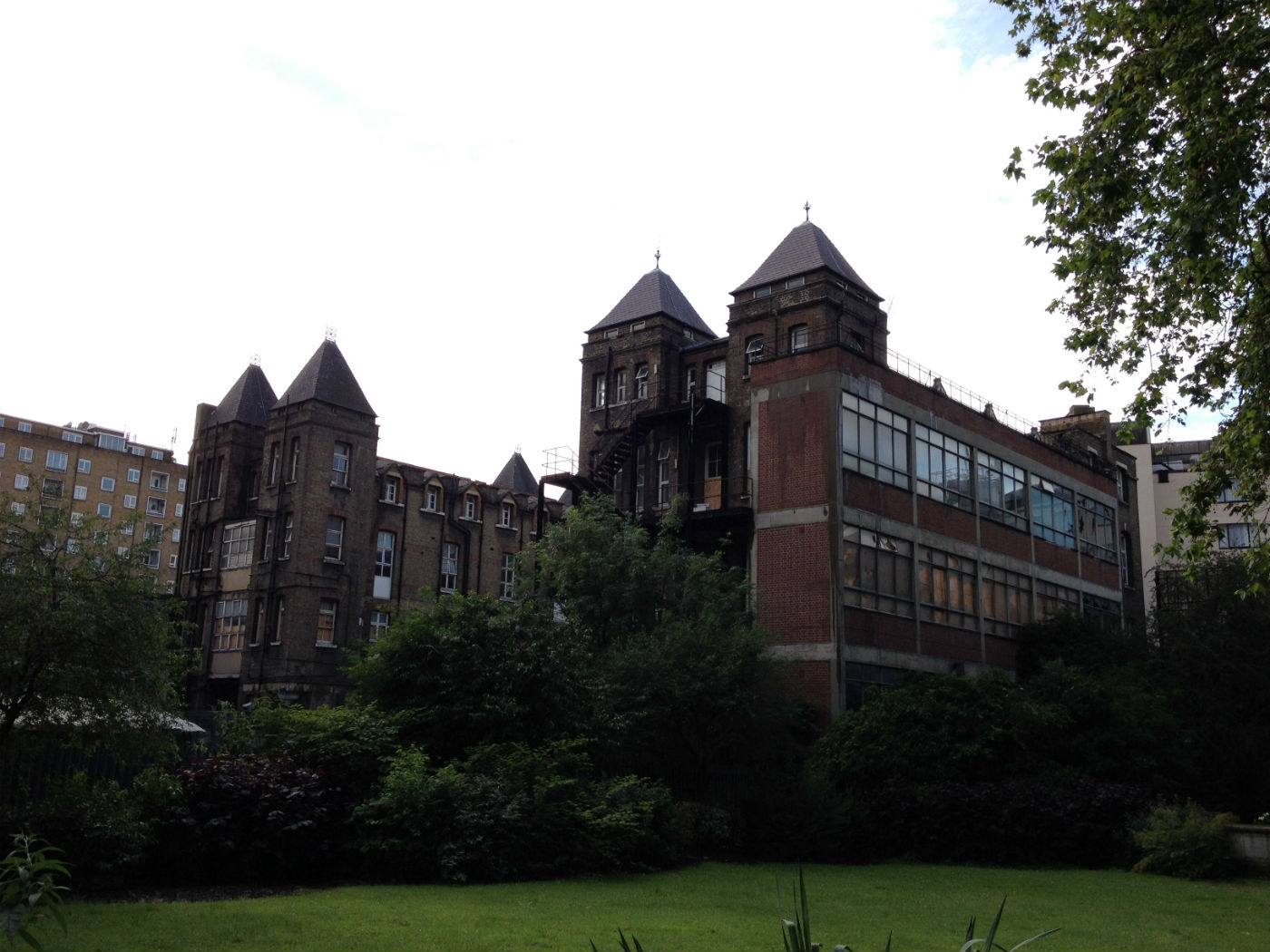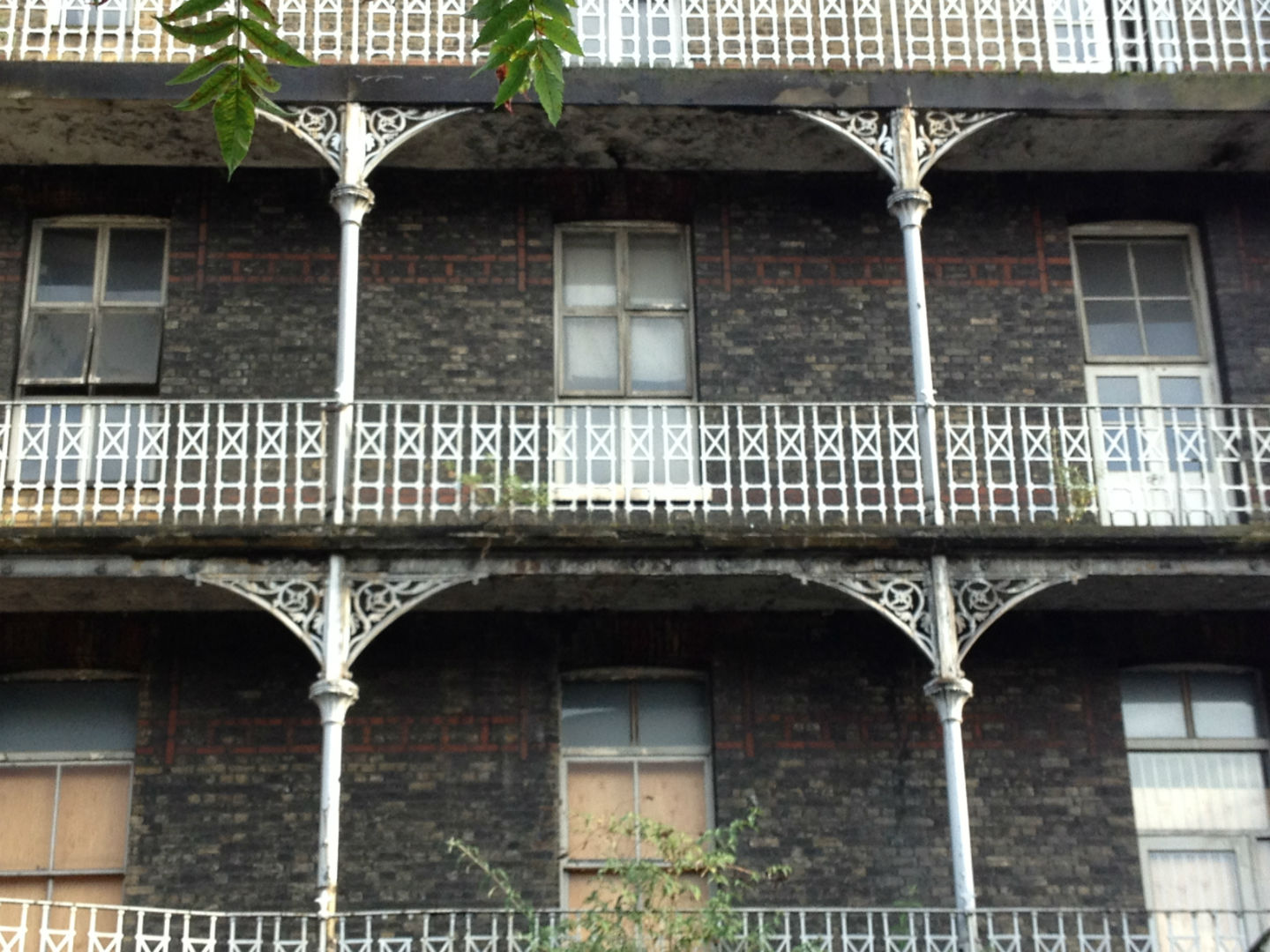
But hang on a minute, where? You know, the building on Hampstead Road that’s boarded up, with amazing original Victorian features, and just a few minutes’ walk from Warren Street tube. You pass it every time you take the 24, or 29 bus into the West End.
The folk responsible are Camden Collective, behind all manner of improvements in the area, from refreshed paintjobs on bridges to pop-ups in empty shops as well as on-trend office hubs.
But this new project, designed by Co-DB and RARA, is next-level by the sounds of it. The idea? To revamp it as a co-working space, as the team have done with other derelict spaces on nearby Camden High Street. And it opens next month.
“This building has been vacant for around a decade,” says head honcho Simon Pitkeathley, “but by the new year it will bring a fresh lease of life to the area, and stand as a real asset to Camden. It will feature our classic co-working space for hot-desking, but there’ll also be paid-for lockable rooms. It’s a departure from our previous model of only free hot-desking spaces, with Collective members that have grown both financially and in terms of staff numbers progressing to paying for their own private business space.”

But a “temperance hospital”? For over a century it was simply a place that refused to use alcohol in the treatment of patients. The London Temperance Hospital (later, in 1939, the National Temperance Hospital) opened in 1873 in Gower Street. It moved to Hampstead Road in 1885 (you can still see the foundation stone), where the use of alcohol was prohibited – except in the most extreme circumstances.


Since the hospital packed up though, the building stood empty and fell into disrepair. Various ‘explorers’ have snuck inside to have a look around, and found a sad sight – the windows cracked, smashed up by vandals, the basement sodden, flooded by a gushing water main, and filled with noxious fumes. But, as Camden Collective understand, the elegance of the building isn’t lost. Long, windowed walkways give onto balconies and panelled rooms. Light floods in, and the square round the back is a haven, tangled in green overgrowth.
So, as regular top-of-the-bus users will vouch for, it’s a special building and an important part of local history. Here’s to its new, very 2015 role as ultra-modern co-working space.
With huge thanks to Georgia Grimond for the original research and words on the history of the building.


